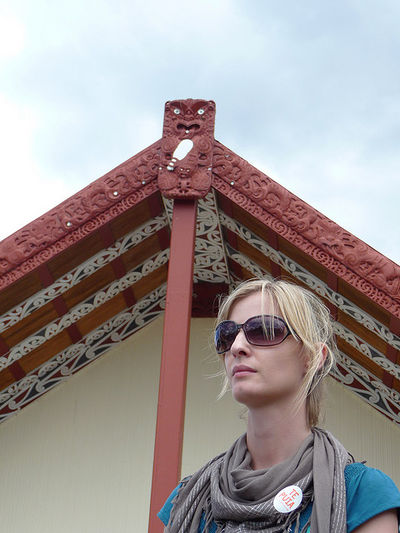What does cultural competence mean?
| Practice Context | |
|---|---|
| Biculturalism | |
| What does cultural competence mean? | Objectives | What is cultural competence? | Biculturalism for teachers | e-Learning activity - Exploring cultural competence. | Summary |
This Unit (Biculturalism[1] / Cultural Competence) contains three modules that focus on learning outcomes related to the bicultural commitments within education in New Zealand. The specific focus is on the New Zealand context where you will undertake an exploration and recognition of what you currently know and how you plan to learn more about the principles of Te Tiriti o Waitangi, Te Reo Māori and Tikaka Māori and how you incorporate your knowledge of this into your teaching practice.
This Unit does not 'teach you' about Te Tiriti o Waitangi, Te Reo Māori and Tikaka Māori as that is not appropriate in this context but does lead you on a trail of self discovery learning and help you identify further areas of learning for yourself.
Otago Polytechnic does offer courses in these areas in the Certificate in Mata a Ao Māori that are highly recommended to support your learning in the GDTE programme.
This first module is designed to provide an introduction to the much broader background concept of cultural competence before bringing your focus back to the specific learning outcomes in this course relating to Te Tiriti o Waitangi, Te Reo Māori and Tikaka Māori.
To work through this topic click on each of the tabs in the title bar and work through the pages in order.
On successful completion of the first module in this Unit you will be able to:
This is the first step in preparation to tell your story of how you demonstrate the application of the principles of Te Tiriti o Waitangi, the concepts of Tikaka Māori and the use of Te Reo Māori in your own teaching practice context by the end of the 7th module. |
Key definitions
Te Tiriti o Waitangi - "The Treaty of Waitangi is the founding document of New Zealand. It is an agreement entered into by representatives of the Crown and of Māori iwi (tribes) and hapū (sub-tribes). ... It was a broad statement of principles upon which the British officials and Māori chiefs made a political compact or covenant to found a nation state and build a government in New Zealand to deal with pressing new circumstances."(para 2). [2]
Te Reo Māori - "noun(New Zealand) the Māori language" [3]
Tikaka Māori - "noun (New Zealand) Māori ways or customs"[4]
Tikaka/“Tikanga can be described as general behaviour guidelines for daily life and interaction in Māori culture. Tikanga is commonly based on experience and learning that has been handed down through generations. It is based on logic and common sense associated with a Māori world view.”(para 1) [5]
References
- ↑ Hayward, J. (2012, 9 November).Biculturalism.Te Ara – The Encyclopedia of New Zealand. Retrieved from http://www.teara.govt.nz/en/biculturalism
- ↑ Ministry for Culture and Heritage (2012). Treaty FAQs. Retrieved from http://www.nzhistory.net.nz/politics/treaty/treaty-faqs.
- ↑ Collins.(2013) English Dictionary. HarperCollins Publishers Limited. Retrieved from http://www.collinsdictionary.com/dictionary/english/te-reo?
- ↑ Collins.(2013) English Dictionary. HarperCollins Publishers Limited. Retrieved from http://www.collinsdictionary.com/dictionary/english/tikanga?
- ↑ Te Taura Whiri i te reo Māori / Māori Language Commission. (n.d). ‘’Tikanga Māori - Protocols overview.’’ Retrieved from http://www.korero.maori.nz/forlearners/protocols.
